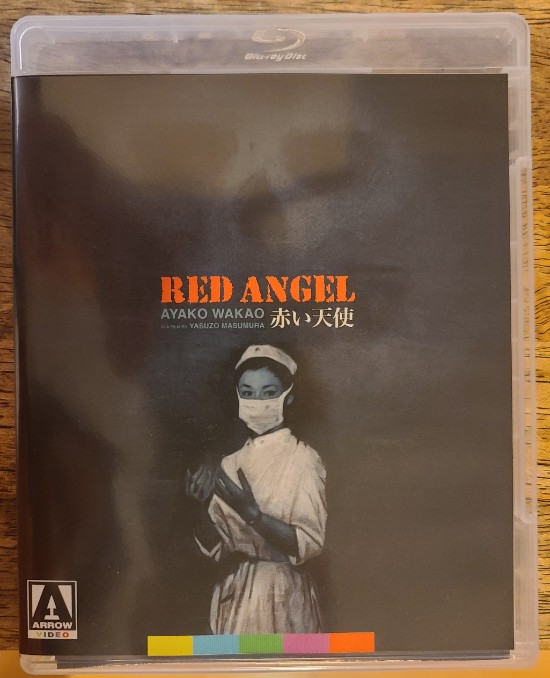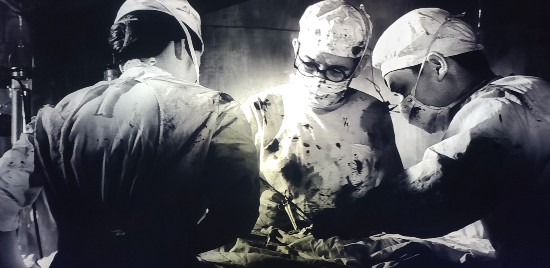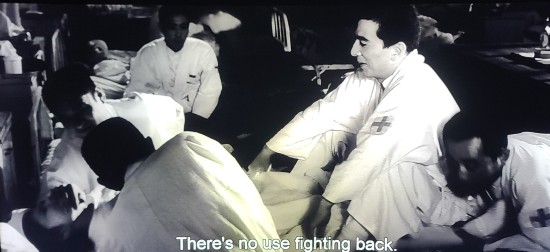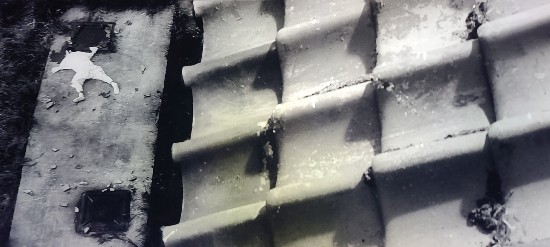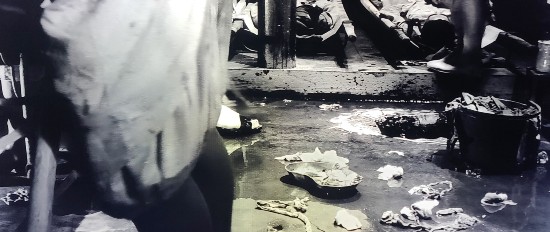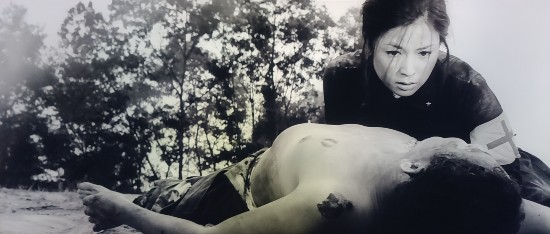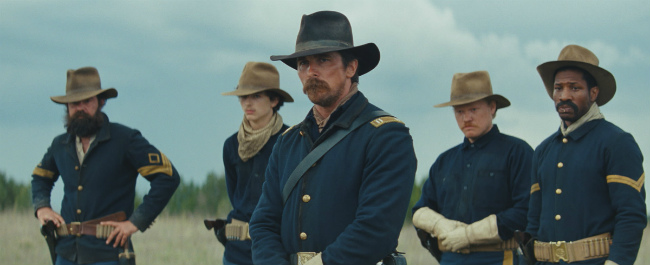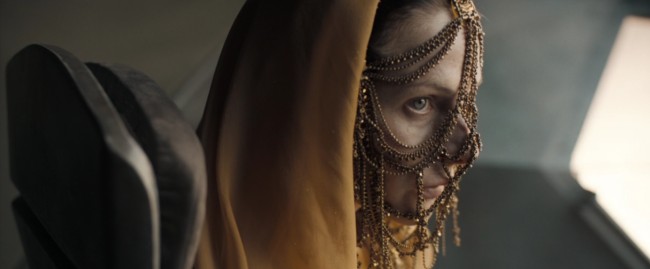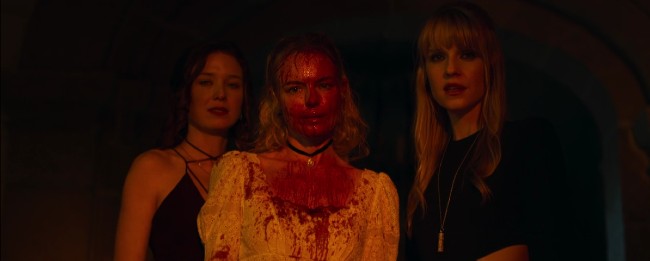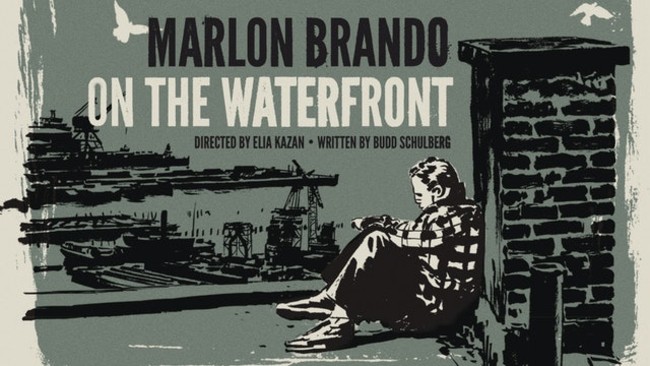ln Review Red Angel on Arrow Video
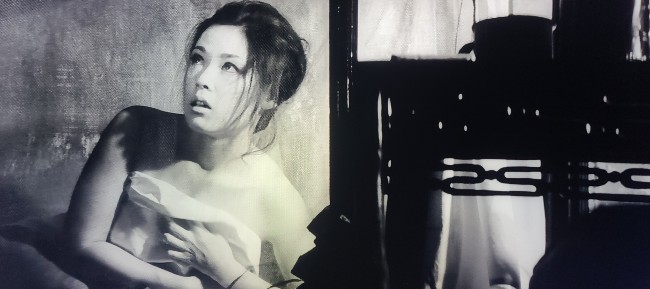
Our review of Yasuzô Masumura’s 1966 classic Red Angel and Arrow Video’s recently released Blu-ray edition of the movie.
Red Angel opens with the sounds of war- explosions, gun fire, men screaming- accompanied by still images bombs going off, marching toops, and human skulls. These are Chinese bombs exploding on Japanese soliders and the skulls floating near the water’s edge are Japanese skulls. One would initially think that Red Angel is an anti-war movie. Images such as these usually indicate this would be the director or screenwriter’s approach. Yet Red Angel is not an anti-war movie, but neither is it a pro-war movie.
THE SECOND SINO-JAPANESE WAR
Red Angel is set during the Second Sino-Japanese War in May of 1939. Briefly, the Second Sino-Japanse War started when Japan started a little war based on a lie to take control of the Korean Peninsula. The small little war turned into a bigger war wherein Japan seized control of Manchuria and eventually China itself.
Although from reality, director Yasuzô Masumura depicts Japan on the ropes continually fighting an uphill battle against the Chinese. Outnumbered and outgunned the military hospitals fill up with damaged and wounded soldiers. Sakura Nishi, a young nurse, marches into a military hospital like a dutiful Japanese citizen of the time.
THIS AIN’T M.A.S.H.
The hospital she’s been assigned to is a short staffed and unsanitary affair. Bloody rags are strewn across the floors. Blood covers the walls and the doctors and nurses’s uniforms. Orderlies bark our orders to separate those soldiers who can be saved from those soldiers who will die. The bodies stack up.
Masumura creates claustrophobic operating scenes. Doctors and nurses are huddled around wounded and dying soldiers. This is as much to cover the fact that Masumura couldn’t, either by lack of resources or censorship, show the operation as it is to create a sense of dread. He’s priming the audience to put an image to the screams. Although we don’t see limbs being removed from the rest of the body we can imagine the blood and sinew associated with such an operation. Sometimes the imagination is better, or worse depending on the occasion, than actually seeing the operation.
SEX IN WAR TIME
When the audience hasn’t yet settled into the trauma of Red Angel it turns to sex. During nightly rounds Nishi is assaulted by a group of soldiers. Another soldier convinces Nishi to masturbate him because he has no arms. Later she takes him to a hotel room and lets him do whatever he wants and is capable of doing to her.
Soldiers, with few exceptions, are depicted as sex crazed brutes. The soldier who helped assault Nishi gives her a sneer and tells her “a man needs a woman” in a place like “this.” He’s either referring to the hospital or the war in general. Even women with cholrea aren’t spared from ill intention. Soldiers at a forward base demand the comfort women to be released from quarantine so they can “work.” When Nishi stops them they turn their attention towards her. If it weren’t for a timely intervention she would have been assaulted again.
Sex and Death are interchangeable in Red Angel. The soldier who raped her dies shortly after surgery. He’s left on a pile of other dead and dying soldiers. The armless soldier commits suicide after his evening with Nishi. Based on the number of soldiers left in the final act to face the attacking Chinese army it would be a safe bet the soldiers who took the sick comfort woman also died.
PROSTITUTE OR ANGEL?
The original trailer to Red Angel (two trailers are included on the Arrow Blu-ray release) ask is Nishi a “prostitute or angel?” Neither word seems to be a fitting noun for her. Nishi by any definition of the word is not a prostitute. ‘Angel’ gives the negative connotation that she’s an angel of death. Again, this is not a fitting word for Nishi.
Nishi is being humane in an inhumane world. It’s a world where she is told the only way to survive is “to treat everyone as a stranger.” Yet, Nishi does not. She pleaded to get the soldier who raped her a blood transfusion. She took pity on the armless patient because she knew no one would help him in the civilian world. At no time is she responsible for these men’s death.
While she’s being assaulted and leered at by soldiers Nishi falls in love with Dr. Okabe. Dr. Okabe is the lone doctor who, by his own admission, is no longer a doctor. He’s only someone who decides who lives and who dies. The carnage and death he has witnessed over the course of the war has led him to become a morphine addict.
LOVE AND OTHER DRUGS
For much of the movie Okabe ignores and rebuffs Nishi’s sexual advancements. It’s not until the third act we learn why. The constant use of morphine has made him impotent. In Okabe’s mind an impotent man is a crippled man and a man is better off dead than a cripple. He only wants morphine, he doesn’t want to be with Nishi.
In one night Nishi not only manages to cure him of his addiction but also to restore his manhood. Sex has defeated the ravages of morphine by what Okabe calls a “great ecstasy.” Their ecstasy delves into bondage, branding, and role playing. Only after Nishi takes off Okabe’s uniform and gives it back does Okabe officially become a man again.
DEATH BE NOT KIND
With his manhood restored Okabe joins the remaining troops in fighting the oncoming Chinese army. Sex and death may be the same in Red Angel, but so is love. Okabe dies during the final assault on the camp. He dies on the battlefield while the others died painful dishonorable deaths. In Red Angel, it’s not how you die but how you acted before you died. Okabe dies on the battlefield because he loved Nishi. Okabe’s death is an honorable death.
Nishi was told earlier on “It’s everyone for themselves or there’s no surviving it.” But Nishi proves them wrong. She survives not by turning inward but by turning outward. Masumura wasn’t so much interested in showing war or even the truth as he was showing the effects of war on one person. War doesn’t have to turn you into a monster, but it will always lead to tragedy.
EXTRA! EXTRA!
(Review was read before extras were viewed)
Jonathan Rosenbaum’s ‘Not All Angels Have Wings’ breaks down Red Angel in a video essay. Rosenbaum also compared Samuel Fuller to Masumura. Rosenbaum mentions many things that were mentioned in this review.
Japanese cinema scholar David Dresser provides a commentary on the Blu-ray. Dresser goes into detail about Masumura’s life, gives scene analysis, and some history of the agression between Japan and China. Although some of his historical facts are off this commentary is academic enough to be shown in a cinema history class. That very detail may turn some viewers off.
Included in the booklet is an excellent essay about Masumura and Red Angel ‘In a Mad World, Only the Mad are Sane’ by Irene Gonzalez-Lopez. It covers some of the same territory as the video essay and commentary but is well worth your time reading.

